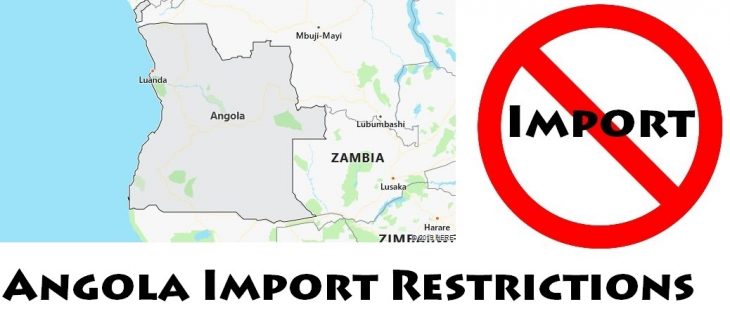Angola Import Restrictions
In order to enter Angola, certain goods are subject to specific controls and, regardless of their value and quantity, they require the consent of Angola government, preferably, license must be obtained prior to passage through the customs, preventing the goods from being retained. On this page, you will see what kinds of items are prohibited from entering the Angola, and which items need special documentation before exporting to Angola.
Import restrictions
Senders should determine import restrictions from Angolan authorities before posting:
- Alcoholic beverages
- Animal products
- Chemicals: non-hazardous
- Communications equipment
- Computer components and parts
- Drugs: prescription and non-prescription
- Foodstuffs
- Films
- Firearms and firearm parts
- Grain Samples
- Industrial equipment
- Liquids: non-hazardous
- Medical/dental samples – supplies and equipment
- Parts: machine and electronic
- Plant products
- Telecommunications equipment
- Toys
EDN’s and export permits are required for:
- Kangaroo skins
- Crocodile skins
- Emu oil
- Fish oil
- Bunker oil
- Coal
- Petroleum bases products
- Tobacco and tobacco products
- Any other alcohol including beer and spirits all volumes.
Special documentation
Plants and seeds must include a Certificate of Origin. Other non-letter articles should include a Certificate of Origin to reduce customs clearance fees.
The sender and receiver details must be addressed with a valid street address in English. A Post Office Box address is not acceptable.
The sender is responsible for finding if the destination country may impose duties, taxes, brokerage fees or any other fees that may be applied on the item that is being sent. Please contact the consulate office of the country you are sending to or contact the ECI customer contact centre on 1800 007 678.
Prohibitions
In addition to items prohibited by Dangerous and Prohibited Goods & Packaging Post Guide and ECI International Courier Regulations














































